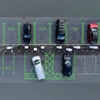EU, UK approve 3-year postponement of tariffs on electric vehicles
The European Union and the UK approved a three-year postponement of tariffs on electric vehicles, giving carmakers more time to make necessary changes to comply with local content requirements
)
The tariffs that were set to kick in from next year would have charged a 10% duty on vehicles and batteries traded between the bloc and the UK if less than 45% of their value comes from the region - a policy meant to strengthen the European battery supply chain. (Photo: Bloomberg)
Listen to This Article
By Katharina Rosskopf and Max Ramsay
The European Union and the UK approved a three-year postponement of tariffs on electric vehicles, giving carmakers more time to make necessary changes to comply with local content requirements under a bilateral trade deal.
The tariffs that were set to kick in from next year would have charged a 10% duty on vehicles and batteries traded between the bloc and the UK if less than 45% of their value comes from the region - a policy meant to strengthen the European battery supply chain.
Maros Sefcovic, the EU chief for post-Brexit relations, called the deal a “balanced solution that protects the EU’s interests”, while UK Prime Minister Rishi Sunak said it would be “a huge relief to the industry” in statements following the announcement.
The car industry as well as the UK and many EU member states had argued for a delay of the measure, saying that the cell supply is not currently up to speed.
Also Read
The three-year grace period is meant to give the industry sufficient time to expand battery production in the region, according to a statement.
Trade associations from both sides welcomed the announcement that the so-called ‘rules of origin’ tariffs would not take effect until the start of 2027. The agreement “provides much-needed certainty to Europe’s growing electric vehicle battery supply chain”, according to Sigrid de Vries, Director General of the European Automobile Manufacturers’ Association.
Both the EU and the UK have promised to provide funds to support the expansion of battery production. The EU’s executive arm will provide €3 billion ($3.3 billion) funding of under the Innovation Fund. The UK said Chancellor of the Exchequer Jeremy Hunt’s Autumn Statement included more than £2 billion ($2.5 billion) to support the manufacturing of EVs, batteries and the supply chain.
The tariff delay is a one-off extension, which can’t be prolonged, the EU stressed. The decision enters into force immediately.
More From This Section
Don't miss the most important news and views of the day. Get them on our Telegram channel
First Published: Dec 21 2023 | 11:27 PM IST


